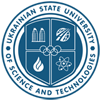Digital Knowledge, Skills and Application among Librarians and Library Staff of MUNPARLAS Library Association, Incorporated
DOI:
https://doi.org/10.15802/unilib/2023_294175Keywords:
digital knowledge, skills, librarians, library staff, library associationsAbstract
Objective. The study aimed to identify and assess a level of digital knowledge, a level of digital skills, and a level of digital application of the librarians and library staff who are members of MUNPARLAS Library Association, Inc. Methods. Descriptive-correlational research design was used in this study to provide static pictures of situations as well as to establish the relationship between different variables. The respondents of this study are 60 Librarians and Library Personnel who are members of MUNPARLAS Library Association, Inc. Results. Findings revealed that the respondents' level of digital knowledge was very high, with an average weighted mean of 3.39. The respondents' level of digital skills was also very high, with an average weighted mean of 3.25. Additionally, the respondents' level of digital application was very high, with an average weighted mean of 3.52. There was a significant relationship between the respondents' digital knowledge and digital skills, as indicated by a p-value of 0.000, which was lower than the Pearson r-value of 0.812. Similarly, there was a significant relationship between the respondents' digital skills and digital application, with a p-value of 0.000, lower than the Pearson r-value of 0.712. Lastly, there was also a significant relationship between the respondents' digital knowledge and digital application, with a p-value of 0.000, lower than the Pearson r-value of 0.649. Therefore, it is necessary to propose an action plan to sustain the digital knowledge, skills, and application among librarians and library staff at MLAI. Conclusions. The findings of this study underscore the importance of digital literacy in the field of librarianship. MLAI should continue to prioritize the cultivation of digital knowledge, skills, and application among its staff to adapt to the evolving needs of its users and to stay ahead in the digital age.
References
Abdulkadir, M. G. (2018). Assessment of digital literacy skills of librarians in selected tertiary institutions in Niger State. Retriеved from http://surl.li/oqlcu (in English) (in English)
Ali, M. Y., Naeem, S. B., & Bhatti, R. (2020). Digital technologies applications in the provision of library and information services in health crises. Journal of Hospital Librarianship, 20(4), 342-351. doi: http://dx.doi.org/10.1080/15323269.2020.1820127 (in English)
Crockett, L. W. (2018). Librarians lead the growth of information literacy and global digital citizens. Knowledge Quest, 46(4), 28-33. Retriеved from https://files.eric.ed.gov/fulltext/EJ1171701.pdf (in English)
Joute, Z. (2019). Application of information technologies (IT) in libraries. Journal of Advances and Scholarly Researches in Allied Education, 16(9), 813-814. Retriеved from https://ignited.in/I/a/242474 (in English)
Julien, H. (2019). Digital Literacy in Theory and Practice. In M. Khosrow-Pour, D.B.A. (Ed.). advanced methodologies and technologies in library science, information management, and scholarly inquiry (pp. 22-32). IGI Global. doi: http://dx.doi.org/10.4018/978-1-5225-7659-4.ch003 (in English)
Kennan, M. A., Quinn, S., McCallum, Sh., Narayan, B., & Luca, E. (2022). December 2022 Editorial. Journal of the Australian Library and Information Association, 71(4), 303-305. doi: https://doi.org/10.1080/24750158.2022.2138098 (in English)
Laar, E. V., Van Deursen, A., Van Dijk, J., & Haan, J. (2019). The sequential and conditional nature of 21st-century digital skills. International Journal of Communication, 13, 3462-3487. Retriеved from https://www.alexandervandeursen.nl/Joomla/Media/Journal/2019_IJOC_Sequential_21DS.pdf (in English)
Lacruz, N. (2018). Technology Integration models and barriers. Technology and the Curriculum: Summer 2018. Retriеved from https://pressbooks.pub/techandcurriculum/chapter/samr/ (in English)
Martzoukou, K. (2021). Academic libraries in COVID-19: a renewed mission for digital literacy. Library Management, 42(4/5), 266-276. doi: https://doi.org/10.1108/LM-09-2020-0131 (in English)
Nnenda, T.-G., & Nsirim, O. (2020). Digital library services for sustainable university education. International Journal of Innovative Education Research. 8(3), 128-135. Retriеved from https://www.researchgate.net/publication/361861546_Digital_Library_Services_for_Sustainable_University_Education (in English)
Obinyan, O. O. (2020). Application of mobile technologies in library service delivery. In A. Tella (Eds.), Handbook of research on digital devices for inclusivity and engagement in libraries (pp. 371-381). IGI Global. doi: http://dx.doi.org/10.4018/978-1-5225-9034-7.ch019 (in English)
Okeji, C. C., Tralagba, E. C., & Obi, I. C. (2020). An investigation of the digital literacy skills and knowledge-based competencies among librarians working in university libraries in Nigeria. Global Knowledge, Memory and Communication, 69(4/5), 311-330. doi: https://doi.org/10.1108/GKMC-05-2019-0054 (in English)
Puentedura, R. (2016). How to apply the SAMR model with Ruben Puentedura [Video file]. Retriеved from https://youtu.be/ZQTx2UQQvbU?si=-dEGhqmiAmV_8bps (in English)
Ramzan, M., Asif, M., Ahmad, S. (2021). Librarians’ attitudes towards application of information technology in academic libraries in Pakistan. Information Research, 26(1). doi: https://doi.org/10.47989/irpaper887 (in English)
Sawant, S. & Yadav, S. (2020). Knowledge, proficiency and expertise required by smart librarians in the digital era. Journal of Indian Library Association, 56(4), 1-15. Retriеved from https://ilaindia.net/jila/index.php/jila/article/viewFile/357/234 (in English)








